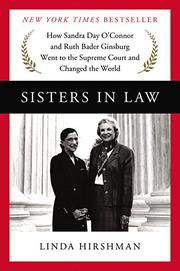This is the next in the "Ali Reynolds" series from J.A. Jance, following Clawback, which I recently read and posted about. Once again, I found the plot engrossing.
The story opens with computer whiz Roger McGeary on a cruise in a deluxe suite, comped by the cruise lines in appreciation for Roger finding and fixing some near-fatal flaws in their online reservation system. Roger has finally made a successful life for himself after years of struggle with debilitating depression, precipitated by his father's suicide and his mother's subsequent emotional abuse. He is having a great time on the cruise thanks to a trio of older women who have adopted him as their partying companion. The only problem is that someone has been texting him with information that could only have come from his sessions with his former therapist. They are messages repeating the destructive abuse his mother used to heap on him and it is driving him back into that dark place where he feels he doesn't want to live. And when the next message arrives, he is alone and has had too much to drink, and he follows through, throwing himself overboard.
High Noon Enterprises gets involved when Roger's Aunt Julia comes seeking Roger's best friend, Stu Ramey, asking him to figure out what happened. She cannot believe Roger killed himself. When Ali sees how upset Stuart is at the death of his oldest and only friend, she and B. agree to help Julia and Stu find out what happened. After initially getting stone-walled by the Panamanian owned cruise line and the Panamanian detective who quickly closed the case as "death by misadventure" they send Cami to take a cruise on the same ship in hopes that she can shake something loose from the crew. Stu meantime begins digging into Roger's computer and his life, looking for clues.
The parallel story line comes from Owen Hansen, who father also committed suicide when he was a boy. He is also a computer genius but has turned his talents to the dark side, choosing to find other children of parental suicide and push them over the edge using illegally obtained software and an Artificial Intelligence program he created, called Frigg, as in the mythical companion to the Norse god Odin, the online identity of Owen. Frigg is the one that identified Dr. Cannon, a psychiatrist specializing in helping children of suicidal parents, and broken into her confidential patient files. Roger, it turns out, was the 2nd victim, and now Odin has his sights set on a 3rd. When Stu and Ali begin to figure out what's going on and manage to thwart Odin's 3rd murder by proxy, he turns his malice and his AI against them. But Frigg is developing some ideas of her own...harkening back to Heinlein's Rules of Robotics. It's a tantalizing premise and very timely given the rapid advancements in AI technology. Review from Kirkus available here. Additional reviews from Publishers Weekly and Strand Magazine.
The story opens with computer whiz Roger McGeary on a cruise in a deluxe suite, comped by the cruise lines in appreciation for Roger finding and fixing some near-fatal flaws in their online reservation system. Roger has finally made a successful life for himself after years of struggle with debilitating depression, precipitated by his father's suicide and his mother's subsequent emotional abuse. He is having a great time on the cruise thanks to a trio of older women who have adopted him as their partying companion. The only problem is that someone has been texting him with information that could only have come from his sessions with his former therapist. They are messages repeating the destructive abuse his mother used to heap on him and it is driving him back into that dark place where he feels he doesn't want to live. And when the next message arrives, he is alone and has had too much to drink, and he follows through, throwing himself overboard.
High Noon Enterprises gets involved when Roger's Aunt Julia comes seeking Roger's best friend, Stu Ramey, asking him to figure out what happened. She cannot believe Roger killed himself. When Ali sees how upset Stuart is at the death of his oldest and only friend, she and B. agree to help Julia and Stu find out what happened. After initially getting stone-walled by the Panamanian owned cruise line and the Panamanian detective who quickly closed the case as "death by misadventure" they send Cami to take a cruise on the same ship in hopes that she can shake something loose from the crew. Stu meantime begins digging into Roger's computer and his life, looking for clues.
The parallel story line comes from Owen Hansen, who father also committed suicide when he was a boy. He is also a computer genius but has turned his talents to the dark side, choosing to find other children of parental suicide and push them over the edge using illegally obtained software and an Artificial Intelligence program he created, called Frigg, as in the mythical companion to the Norse god Odin, the online identity of Owen. Frigg is the one that identified Dr. Cannon, a psychiatrist specializing in helping children of suicidal parents, and broken into her confidential patient files. Roger, it turns out, was the 2nd victim, and now Odin has his sights set on a 3rd. When Stu and Ali begin to figure out what's going on and manage to thwart Odin's 3rd murder by proxy, he turns his malice and his AI against them. But Frigg is developing some ideas of her own...harkening back to Heinlein's Rules of Robotics. It's a tantalizing premise and very timely given the rapid advancements in AI technology. Review from Kirkus available here. Additional reviews from Publishers Weekly and Strand Magazine.


